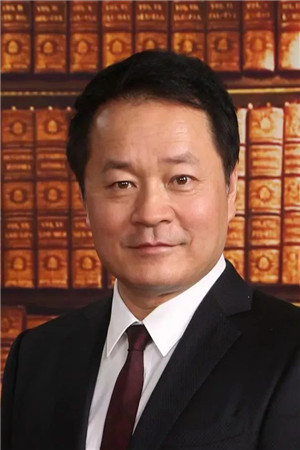
Professor Xiaoliang Sunney Xie
Born in Langrun Garden of Peking University, Xie regards Peking University as his paradise in childhood: “It is here that I achieved my enlightenment, and it must be here that I return with my research.” In the year 1969, Xie’s father gave him a spinning top as a present. The delicate rotating toy aroused the curiosity of Xie, who was then only a boy stepping into his elementary school. Later, using his father’s tools, Xie successfully created a scale, models of airplanes and boats, a sound box, and various other electronic instruments. From then on, he gradually developed the interest in experimental sciences and set up his life goal—to be a scientist.
In 1980, Xie was admitted to PKU’s College of Chemistry and Molecular Engineering. In the first summer vacation at university, Xie tried to calculate the energy of a crystalline structure by programming. This first successful attempt at solving a multi-disciplinary problem with the help of computer science delighted him greatly. His experience at Peking University not only provided him with a solid foundation of knowledge but also cultivated his awareness of innovation.
After receiving his Ph.D. from University of California at San Diego, Xie joined Pacific Northwest National Laboratory as its first member from mainland China and set up his own research team. In 1998, Xie and his postdoctoral colleague H. Peter Lu reported the team’s groundbreaking achievement in Science: they observed the dynamic reaction of a single enzyme molecule (biocatalyst) in real time with the help of fluorescence microscopy. Since the occurrence of a single molecule’s chemical reactions is random, the activities of many biological macromolecules (which often exist as single molecules) in cells are comparatively hard to observe. Therefore, real-time observation provided biological research with a brand-new method. Xie’s team also made progress on Raman scattering microscopy with their invention of a bioimaging method noncontingent upon fluorescent labeling, making the idea of fast nonlinear Raman bioimaging a reality.
In the same year, Xie became the first tenured professor at Harvard University from mainland China since the Reform in China. There, he made significant advances on genomics with the hope of benefiting the society by applying basic research to clinical medicine.
In 2009, Harvard University appointed Xie as the Mallinckrodt Professor of Chemistry and Chemical Biology. However, the idea of returning to Peking University had already sprouted in this outstanding scientist’s heart.
Reflecting on his experience at PKU, Xie wrote in his commemorate article for PKU’s 120th anniversary: “It is here that I spent most of my time as a student. Peking University and I have already established a strong link between each other, for it has experienced the historical changes of China with me.”
Written by: Zhou Yijing
Edited by: Zhang Jiang
Source: PKU News (Chinese)
For more information: The Charm of Spirit 2018, Peking University Press, 2018.